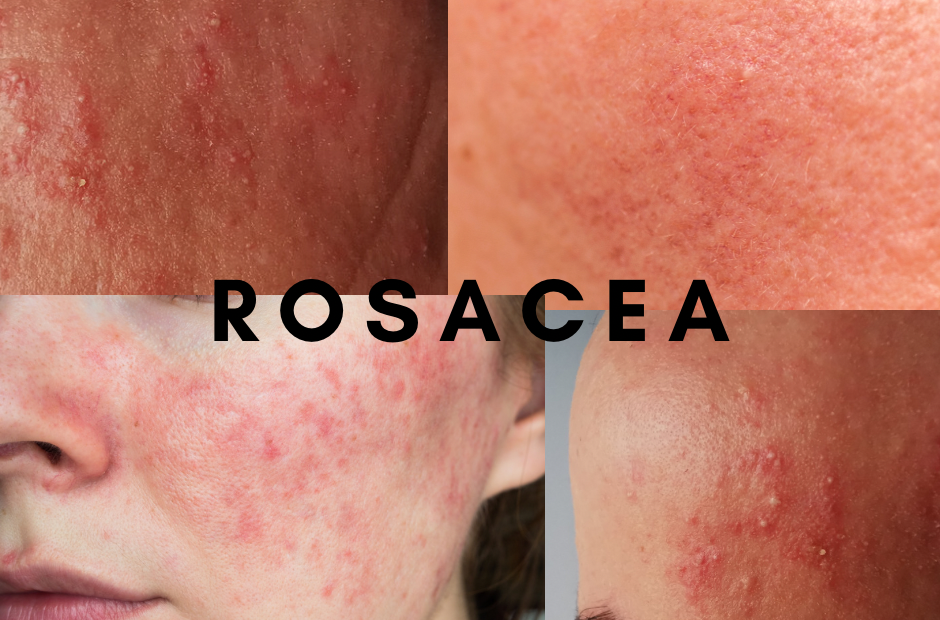Skin Condition – ROSACEA
Rosacea is a common skin condition that is linked to an impaired barrier function of the skin. It is characterized with flushing, persistent redness, visible telangiectasias (dilated blood vessels), inflammation, burning, dryness, and/or papules on the skin.
The condition can sometimes be mistaken for acne, natural ruddiness in skin colour, or other skin issues.
Early diagnosis and treatment is important to control rosacea and prevent progression
Potential Causes:
-Abnormalities in facial blood vessels, may be related to UV exposure
-Genetics/hereditary -Overactive immune system
-Environmental factors -Demodex Mites – Demodex mites are a normal presence on human skin, however, research shows that people with rosacea have 10 times as many demodex mites. When the mites die they release bacteria onto the skin, which can trigger an immune reaction leading to redness and inflammation.
-Intestinal Bacteria – nonspecific bacteria that can be found in the intestines may release inflammatory substances leading to rosacea symptoms -H. Pylori – it is a bacterium that can cause stomach and intestinal infections and triggers the production of bradykinin, which causes blood vessels to dilate. H. pylori is common in people who have rosacea and may be a factor in the development of rosacea.
Rosacea flare-ups can be triggered by:
-hot drinks and spicy foods -red wine or alcoholic beverages
-temperature extremes (hot and cold weather) -sun or wind exposure
-exercise, hot baths or saunas -medications that dilate blood vessels, such as blood pressure medications
-irritants – fragrance, alcohols, abrasive and other irritating substances -stress or hormone changes such as menopause
Treatments:
Treatments can include prescribed medication by a doctor like doxycycline and metronidazole, or topicals that include ingredients such as azelaic acid or brimonidine.
There are also laser treatments that can help improve treat and improve rosacea symptoms. CO2 (ablative) laser, pulsed-dye laser, YAG laser, and intense pulse light (IPL) therapy.
Moreover, being consistent with good quality medical grade products with help prevent and protect the skin from further barrier damage, but as well help repair. Like antioxidants and daily sunscreen.
